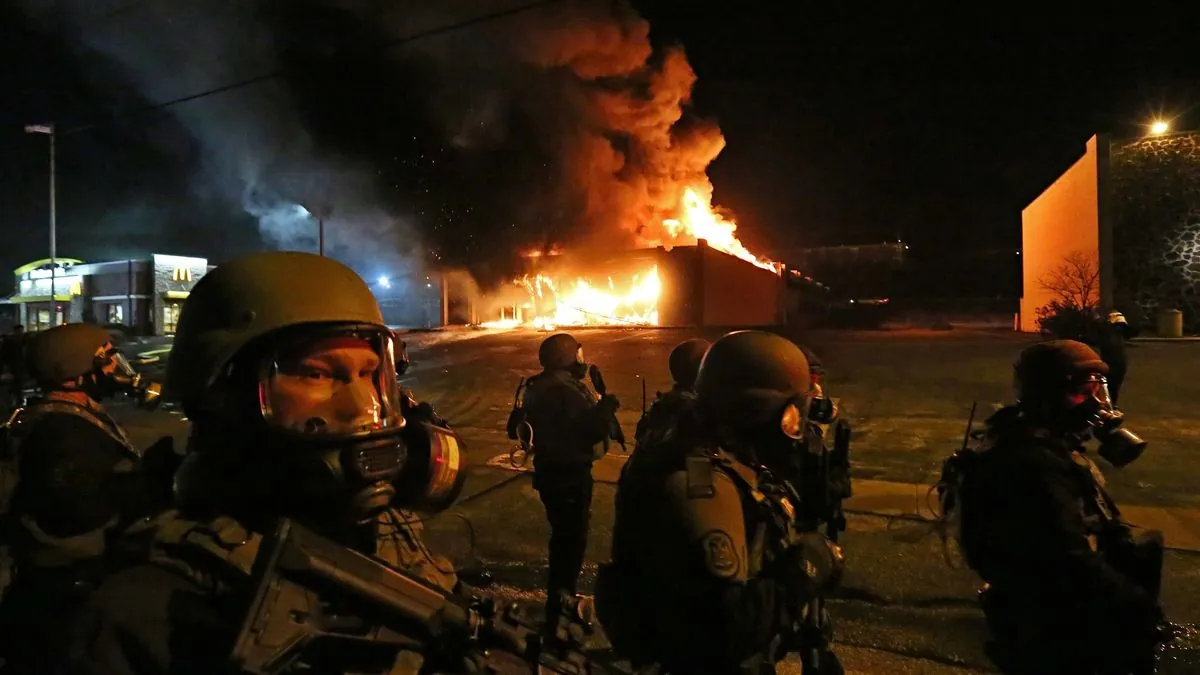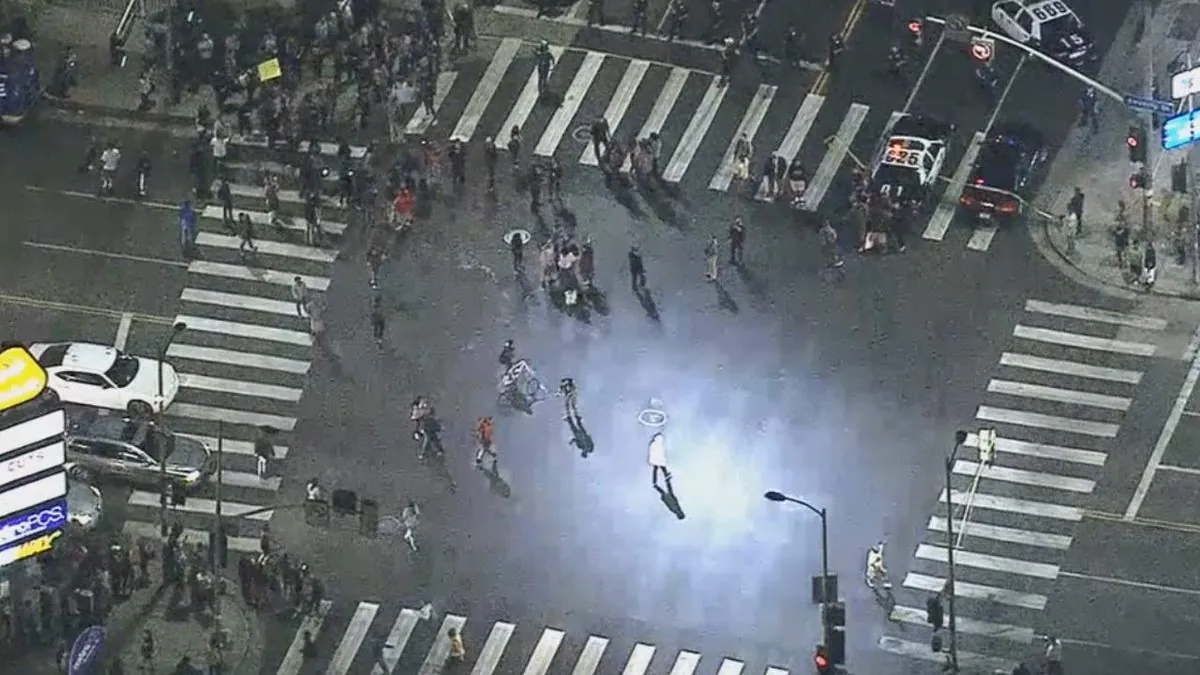Ferguson's Decade-Long Impact: Reshaping American Social Discourse
The 2014 Ferguson protests ignited a new era in U.S. civil rights, influencing discussions on race, policing, and social issues. This event's ripple effects continue to shape activism and public discourse a decade later.

A decade has passed since the fatal shooting of Michael Brown in Ferguson, Missouri, an event that catalyzed a new chapter in America's ongoing struggle for civil rights. This incident, occurring in a town of approximately 20,000 residents, reverberated far beyond its borders, sparking nationwide discussions on race, policing, and social justice.
The Ferguson protests emerged against a backdrop of growing tension. Just weeks earlier, Eric Garner's death in New York City had shocked the nation. These events unfolded as the Black Lives Matter movement, founded in 2013, was gaining momentum, particularly in the wake of George Zimmerman's acquittal for the shooting of Trayvon Martin.

The impact of Ferguson extended far beyond immediate concerns of police brutality. It initiated a broader conversation about racial equity across various sectors of society. This ripple effect manifested in numerous ways:
Athlete Activism: Professional athletes began using their platforms to advocate for social justice. In November 2014, St. Louis Rams players made headlines with an on-field protest. By 2016, Colin Kaepernick's national anthem protest had become a national talking point.
Entertainment Industry: The #OscarsSoWhite campaign, launched in January 2015, highlighted the lack of diversity in Hollywood. This movement gained traction in the post-Ferguson climate of heightened awareness about racial representation.
Widespread Protests: The speed and scale of protests following George Floyd's death in 2020 demonstrated the lasting impact of Ferguson on public engagement with racial justice issues.
"It was as successful as it was because people were open to having the conversation about what it means to be a person of color in this country, whether under the jackboot of state-sanctioned violence or on TV or in film."
The Ferguson uprising's influence extended to various social movements. The fight for LGBTQ+ rights gained momentum, culminating in the nationwide legalization of same-sex marriage by the U.S. Supreme Court in 2015. The #MeToo movement, which gained widespread attention in 2017, further exemplified the interconnected nature of these social justice efforts.
Hahrie Han, a political science professor at Johns Hopkins University, notes that effective social movements not only push for policy changes but also challenge fundamental assumptions about how society functions. This phenomenon was evident in the Civil Rights Movement of the 1960s, which paved the way for other movements focused on women's rights and environmental protection.
The rise of social media, a term first used in 1997, has played a crucial role in amplifying these movements. Twitter, launched in 2006, has become a key platform for activists to spread their messages rapidly and globally.
However, the push for change has not been without opposition. Douglas Hartmann, a sociology professor at the University of Minnesota, highlights the importance of considering the backlash to social movements when assessing their impact. The conservative pushback against diversity, equity, and inclusion efforts in recent years illustrates the ongoing struggle between differing visions of America.
As we reflect on the decade since Ferguson, it's clear that its impact continues to shape American social discourse. From the halls of Congress to the fields of professional sports, the conversations sparked by those protests in 2014 continue to resonate, challenging us to confront long-standing issues of inequality and injustice.


































